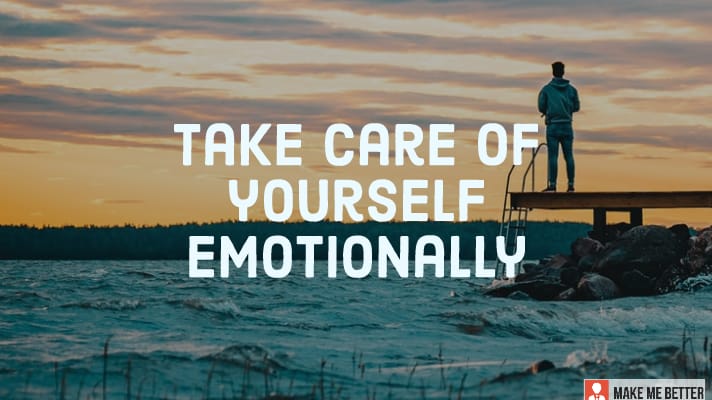Life happens, and your emotions are the expression of what is happening to you. Over the course of your life, you will experience numerous feelings. Many emotions will be familiar — those that occur on a regular basis and reflect the events of your daily life. Some will be less familiar because the events these emotions express will be fewer and farther between.
Mastering your emotions is not only your personal responsibility but is also a positive strategy for getting through life in the best possible way you can. When you have a healthy attitude about your feelings and how to express them, you are better equipped to get through events well, rather than feeling each time strong emotion hits that you are overwhelmed and incapable of handling the situation.
Your emotions should ideally help you understand what is happening. Your mastery of emotion may take time to develop, but once it is acquired, you will no longer feel lost in the emotion of the moment. Rather, you will be able to see your emotional response as a way to understand what is happening and to rise above your immediate feelings in order to act appropriately for that specific situation.
These are some of the basic tools that can help you master your emotions:
1. Know your emotions.
All of them. What are your past experiences with each emotion? Know what triggers each of them. Understand which events, and especially people, are associated with each. Do you understand why you respond emotionally the way you do? Are you satisfied that your emotional response is appropriate and reflects what you truly feel? Or, does your emotional response feel uncomfortable — for example, overreactive (or not reactive enough for the situation)? Do you feel frustrated that you can’t adequately express yourself?
Knowing your emotions should help you judge how to behave when a situation arises. Each new event or interaction should not feel like the first time it’s happening. Each successive time a specific emotion is expressed gives you another opportunity to observe yourself and respond in a way that feels right (or at least better) for you.
2. Maintain healthy boundaries.
How do you maintain your own emotional integrity? How do you keep others’ emotions from invading your space? Are you able to recognize when others’ emotions “become” your own, or at least when others are attempting to make you “feel” the way they do and the way they want you to? Do you have strategies to protect yourself from emotional invasion?
Think of a boundary as a healthy space around you. You decide how big this space needs to be for you to feel comfortable. It may be an actual space, measured as physical distance, or an imaginary psychological/emotional space. When you successfully maintain healthy emotional boundaries, you are taking care of yourself first and foremost. Once you’ve done that, you can actually deal with a situation or person more effectively, since you know what you can and will do, as well as what you will not allow to happen emotionally.
3. Cultivate your own well-being on every level.
Practice self-care whenever possible. Physical care will keep you healthy and strong, better able to endure life when difficult things happen. Psychological well-being goes a long way to help sustain you, especially during life challenges when you are called upon to emotionally respond.
Understanding who you are at your core, what makes you tick, how you differ from or are similar to those around you, and what your attitudes and beliefs are will help keep you on the “right track,” able to stay on your path in order to accomplish what you desire. As with emotions, your psychological outlook helps keep you steady in your own life.
4. Create a healthy support system.
These are people who encourage and nurture you. These are people who know you, like who you are, and are willing to help you become your best self. People with no ulterior motive or private agenda. These are people you can always turn to just to listen and/or provide advice if needed.
It should not be difficult to identify who in your life overwhelms you, weighs you down, worries you, makes you anxious, and/or causes you to engage in situations and relationships that are not in your best interest and that deter you from pursuing what makes you happy and contented. Sometimes it’s hard to grasp that a relationship or situation is engaging you in a negative way. But over time and with repetitive interactions, you should begin to see the bigger picture.
The goal is to eventually move toward more satisfying, productive, and caring relationships that support the kind of life you want to live.
5. Create an emotional or psychological “toolbox.”
This is a great visual for many of these concepts. Your “toolbox” is a place where you keep your coping skills — life management tools that you have acquired over time and over the course of having had numerous life experiences. These tools are strategies you have developed and used effectively to cope with challenges to your life and well-being.
Over time, your personal “toolbox” should come to contain everything you need.


Post a Comment